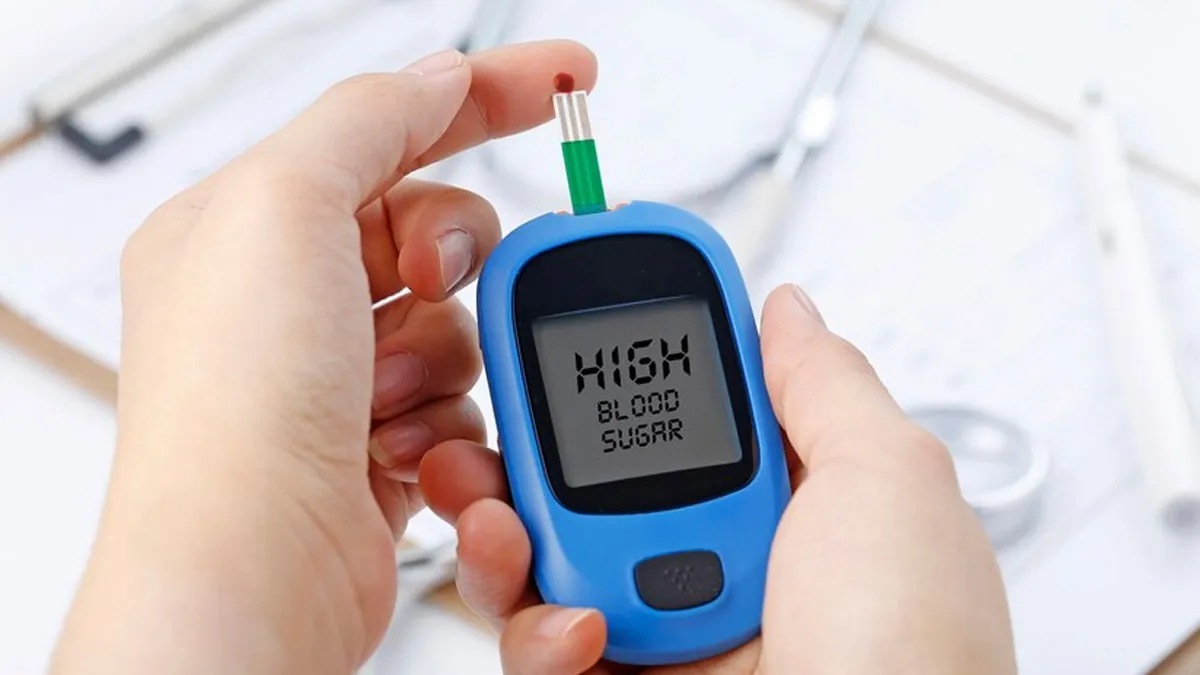
You may be familiar with diabetes, a condition in which your body doesn't produce enough insulin or utilise it properly. But have you heard about 'Brittle Diabetes', a severe form of diabetes? It is characterised by extreme and unpredictable fluctuations in blood sugar levels. This condition can be challenging to manage and significantly impacts a patient’s quality of life. We spoke to Dr Srinivasa Chary A, Consultant General Medicine, Gleneagles Aware Hospital, LB Nagar, Hyderabad, who explained this condition and its management measures.
Table of Content:-
What is Brittle Diabetes?

“Unlike well-controlled diabetes, where blood sugar levels remain relatively stable with proper management, brittle diabetes involves sudden and severe highs (hyperglycemia) and lows (hypoglycemia). These dramatic swings can occur despite a patient adhering to prescribed treatment plans, making blood sugar regulation unusually difficult,” said Dr Chary.
Brittle diabetes is primarily linked to type 1 diabetes, but it can also appear in some people with advanced type 2 diabetes. Although this condition is uncommon, affecting a small fraction of those with diabetes, it can have a significant impact, often requiring frequent hospital visits and intensive medical treatment.
Also Read: Addressing India's Diabetes Dilemma: Never Too Early To Test But May Be Too Late To Treat
Symptoms of Brittle Diabetes
The hallmark of brittle diabetes is its unpredictability and severity. Dr Chary listed its symptoms as follows:

Extreme Blood Sugar Swings: Rapid and severe fluctuations in glucose levels.
Frequent Hypoglycemia: Symptoms include shakiness, confusion, sweating, and even loss of consciousness.
Recurring Hyperglycemia: Symptoms like excessive thirst, frequent urination, fatigue, and blurred vision.
Emotional and Psychological Strain: The unpredictability of the condition can lead to anxiety, depression, and stress, which may exacerbate the issue.
Physical Complications: Increased risk of long-term complications like cardiovascular disease, neuropathy, and kidney damage.
Why is Blood Sugar Management Difficult?
Brittle diabetes is particularly challenging due to multiple underlying factors, including:

Hormonal Imbalances: Erratic insulin production or absorption can complicate glucose regulation.
Gastrointestinal Issues: Conditions like gastroparesis (delayed stomach emptying) can affect how food impacts blood sugar levels.
Stress and Emotional Factors: Psychological stress can trigger hormonal changes destabilising blood sugar.
Inconsistent Insulin Absorption: Variability in insulin absorption at injection sites can lead to unexpected glucose swings.
Underlying Medical Conditions: Co-existing autoimmune or endocrine disorders can further complicate management.
According to the Lancet, people with brittle diabetes experience more psychological disruptions, require higher doses of insulin and have a lower quality of life. Their condition may become more stable over time, however, they are at an increased risk of death, more complications related to small blood vessels, and higher chances of pregnancy-related issues.
Also Read: Diabetes And Ageing: Expert Explains The Link Between Age And Diabetes Symptoms And Progression
Management of Brittle Diabetes
Brittle diabetes is identified through a thorough medical history and monitoring of blood sugar patterns. A Continuous Glucose Monitor (CGM) is often used to track fluctuations over time.
This condition can be difficult to control, however, it can be managed with a comprehensive and personalised approach. Follow these tips shared by Dr Chary:

Insulin Therapy Adjustments: Using advanced delivery systems like insulin pumps or hybrid closed-loop systems to optimise glucose levels.
Dietary Modifications: Working with a dietitian to plan consistent meals and avoid sudden spikes or drops in blood sugar.
Psychological Support: Addressing emotional factors through counselling or therapy.
Treating Underlying Conditions: Managing gastroparesis or other related disorders to stabilise glucose levels.
Frequent Monitoring: Using CGMs and maintaining close communication with healthcare providers.
Bottomline
Dr Chary concluded, “Managing brittle diabetes can be challenging, however, patients can achieve better control with a dedicated medical team and advanced technologies. By addressing the underlying causes, refining insulin therapy, and providing psychological support, the condition’s impact can be minimised. Brittle diabetes is a complex condition that requires vigilant management and support.”
[Disclaimer: This article contains information provided by an expert and is for informational purposes only. Hence, we advise you to consult your professional if you are dealing with any health issues to avoid complications.]
Also watch this video
How we keep this article up to date:
We work with experts and keep a close eye on the latest in health and wellness. Whenever there is a new research or helpful information, we update our articles with accurate and useful advice.
Current Version